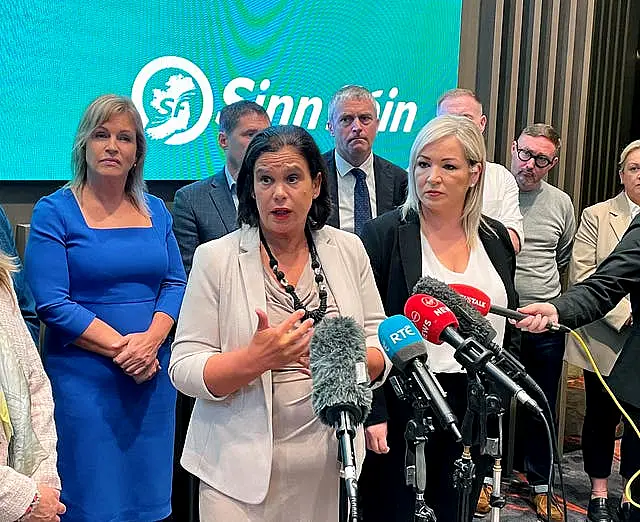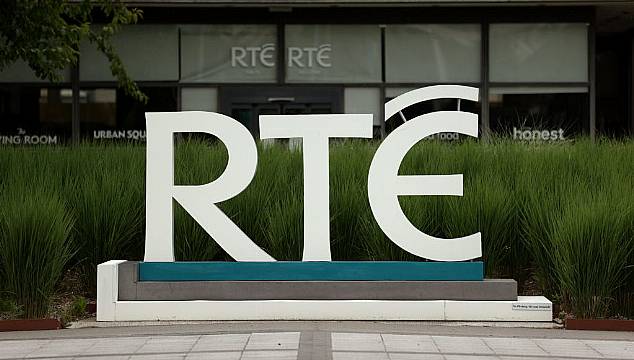The leader of Sinn Féin has said a future model that saw the Irish national broadcaster secure funding directly from the exchequer has “merit”.
RTÉ is facing a funding crisis, exacerbated by a drop-off in licence fee revenue amid a negative public reaction to a summer of controversies at the broadcaster.
The broadcaster operates on a dual-funding model, with approximately 55 per cent of its income or €200 million year brought in by way of the obligatory licence fee, which costs Irish households with a television €160 a year.
It also earns money through commercial operations.

Approximately 85 per cent of revenue from TV licence fees goes to RTÉ to carry out its public service broadcasting commitments.
Speaking at Sinn Féin’s annual think-in, Mary Lou McDonald said: “I watched at a little bit of a remove all of the heat and noise and the breakdown in public confidence and trust around RTÉ.
“It’s very clear that the trust has to be rebuilt. There are very profound governance issues, very profound cultural issues in the organisation, and they need to be sorted out.
“The first thing we need to see is what the new director general has to say, what’s the plan according to RTÉ. And then we need to have a conversation around the long-term sustainability and viability of public service broadcasting.
“So, let’s be just very clear, that by definition has to be absolutely independent of any political, not just interference, but bias, or it should be in no way partisan, it has to be absolutely independent. So, whatever model we land on, take that as read, that has to be one of the foremost considerations.
“There are different options around how we can sustainably fund RTÉ and public service broadcasting more broadly. Direct exchequer funding is one. It was the preference of the commission (Future of Media Commission) if you recall, I personally see merit in that for sustainability and for planning purposes, and so on.
“We’re going to look at all of the options, we’re also going to talk to RTÉ, talk to other broadcast organisations, but we need to have agreement on how we sort his out, not just in the short term, but in the long term.”
Taoiseach Leo Varadkar said the broadcaster “requires change”.

Mr Varadkar described himself as a supporter of RTÉ, adding that he wants it to be “strong in the future”.
Speaking at his Fine Gael party annual think-in, he said any change to the funding of public service broadcasting “can’t just be about RTÉ” as other outlets also provide that service.
Separately, he said he would be “happy” to appear on RTÉ’s The Late Late Show with new host Patrick Kielty, who takes over the role on Friday.
He said that to his knowledge he had yet to be invited on the programme.
Mr Varadkar said: “I really wish Patrick the best in what is going to be a really big endeavour.”
Permanent TSB has been announced as the new sponsor of the show.
The deal will include a total of 730 credited stings per season and the sponsor’s logo on all dedicated promos on television and social media channels.
Renault was the last sponsor of the show, which became the focus of a controversy around an undisclosed tripartite deal between the car manufacturer, the national broadcaster and previous host Ryan Tubridy.







